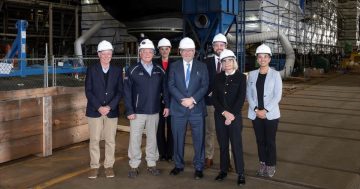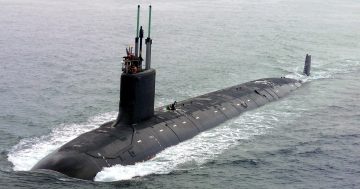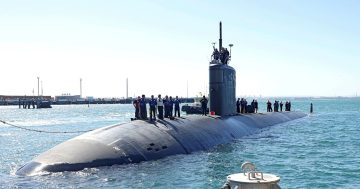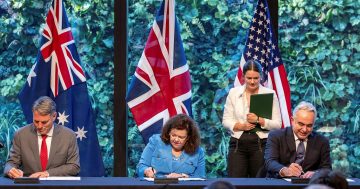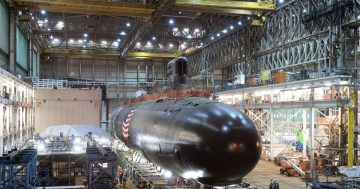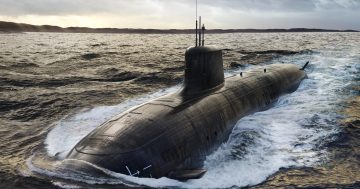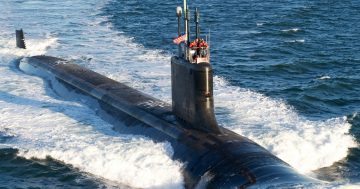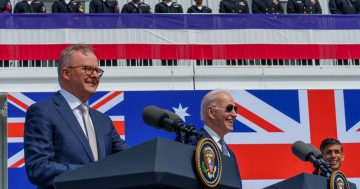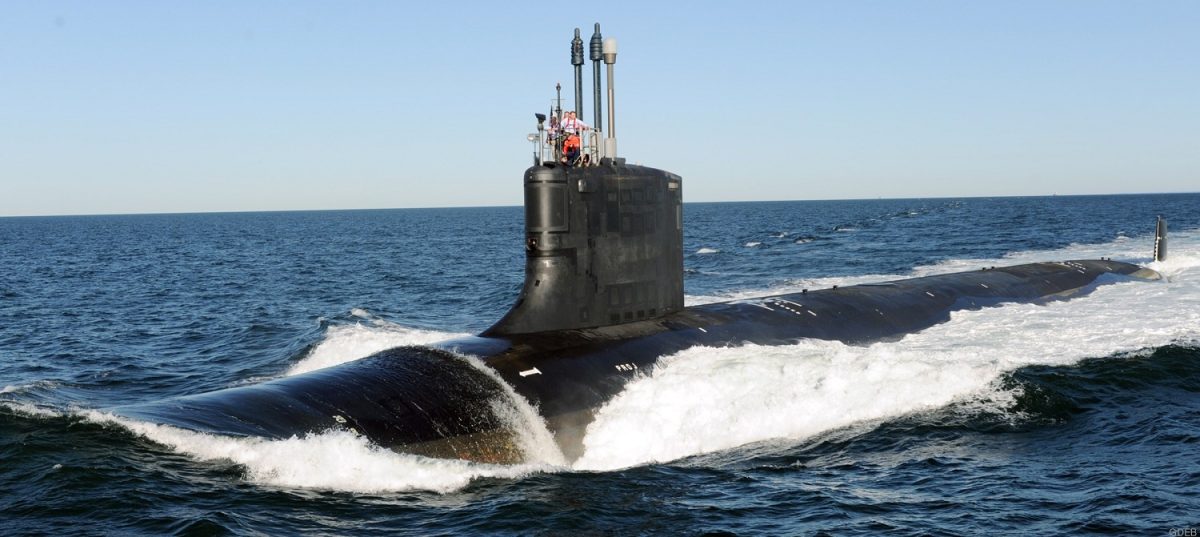
Virginia-class SSN, USS Missouri. Photo: US Navy.
Australia’s plans to acquire US nuclear-powered submarines have received a boost after the powerful US Senate Foreign Relations Committee (SFRC) agreed to support the transfer of nuclear technology to Australia under the AUKUS construct.
The legislation is an amendment to the State Department Authorization Act of 2023 and supports the transfer of two former US Navy Virginia-class submarines to Australia in the 2030s, with a third new-build boat to be sold through the US Foreign Military Sales (FMS) process.
The amendment also sees the relaxation of commercial export controls for Australia, a major hurdle for the Pillar I submarines as well as other capabilities planned under Pillar 2 to be successful.
“I would argue that the new chapter in the relationship between the US, UK and Australia is every bit as exciting because it demonstrates again the capacity of the United States and other like-minded democracies to form alliances,” Democratic Senator Tim Kaine told media in a joint press conference with Australian Ambassador to the US Kevin Rudd in Virginia on 14 July.
“The first pillar will be the construction of Virginia-class subs, which are done here and in Connecticut.
“And then the subs, beginning in the 2030s, will transfer to Australia to enable Australia to take what they already do to promote regional security and do even more.”
The approval of the SFRC is not the final hurdle, as the full Senate is scheduled to vote on the amendment later this month, but analysts and commentators suggest this will likely be a formality as bipartisan enthusiasm is considered high.
The US-based US Naval Institute (USNI) News reported on 14 July that the boats for Australia would likely be Block III or Block IV Virginias – still highly capable submarines – and would be replaced in US service by the latest Block V boats.
In a 13 July statement, Republican Senator and ranking member of the SFRC, Jim Risch, said: “The AUKUS bill included in the state authorisation package the committee voted on today reflects a compromise that advances both pillars of the AUKUS agreement.
“First, it lays out a prudent path forward to aiding Australia in the acquisition of nuclear-powered, conventionally armed submarines. The bill endorses the broad concept of Pillar 1 and signals our understanding of its potential to contribute to stability and deterrence in the Indo-Pacific.
“More immediately, on Pillar 2, this text facilitates innovation and collaboration between the defence industries of the AUKUS partners. This bill changes our approach to defence trade with our closest allies, Australia and the United Kingdom – both of whom have an outstanding record in protecting US technology.”
But questions remain about how the US Navy can afford to provide between three and five Virginia submarines for Australia when it is itself far behind in its planned build program due to ongoing labour and materials delays in the two shipyards that build the boats.
In 2011, the US Naval Shipbuilding Plan wanted the two shipyards that build Virginia boats to be launching two submarines a year, but 12 years later they are yet to achieve this build rate. USNI News suggested that some Republicans may demand the Biden Administration invests more into submarine shipbuilding, and use that as leverage in exchange for supporting the AUKUS deal.
“The AUKUS agreement has the potential to be transformative for the United States, Australia and the United Kingdom,” Senator Risch said. “However, we must match words with tangible actions in order to realise the near- and long-term deliverables of the agreement.”
In December 2022, Senate Armed Services Committee chair, Democratic Senator Jack Reed, and ranking member Republican Senator James Inofe – despite being members of the supportive ”AUKUS Caucus” – reportedly also expressed concern.
“We are concerned that what was initially touted as a ‘do no harm’ opportunity to support Australia and the United Kingdom and build long-term competitive advantages for the US and its Pacific allies may be turning into a zero-sum game for scarce, highly advanced US SSNs,” they reportedly wrote in a letter to the White House.
USNI News said the US Navy planned to invest additional funds, totalling $US1.7bn ($A2.5bn), in the shipyards from later this year in an effort to increase submarine production and maintenance rates – specifically in growing the workforces and supply chains – to get the yards back on track, and this may reduce the pressure on Australia’s goals to obtain Virginia-class boats.
True to form, Mr Rudd said it all in the media conference: “I know the business of making sausages can sometimes be untidy, messy, prolonged, but ultimately, there’s a sausage at the end.”












